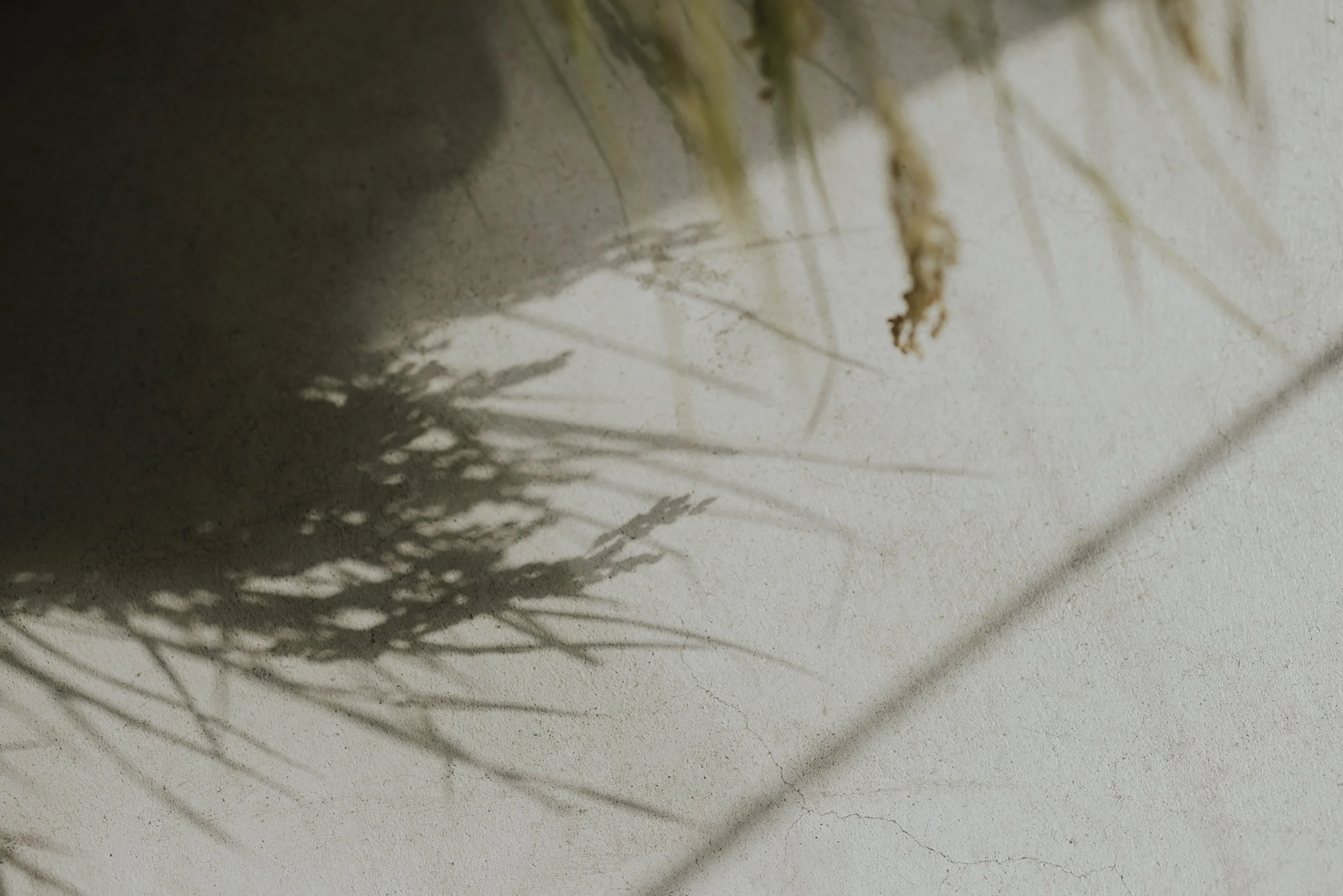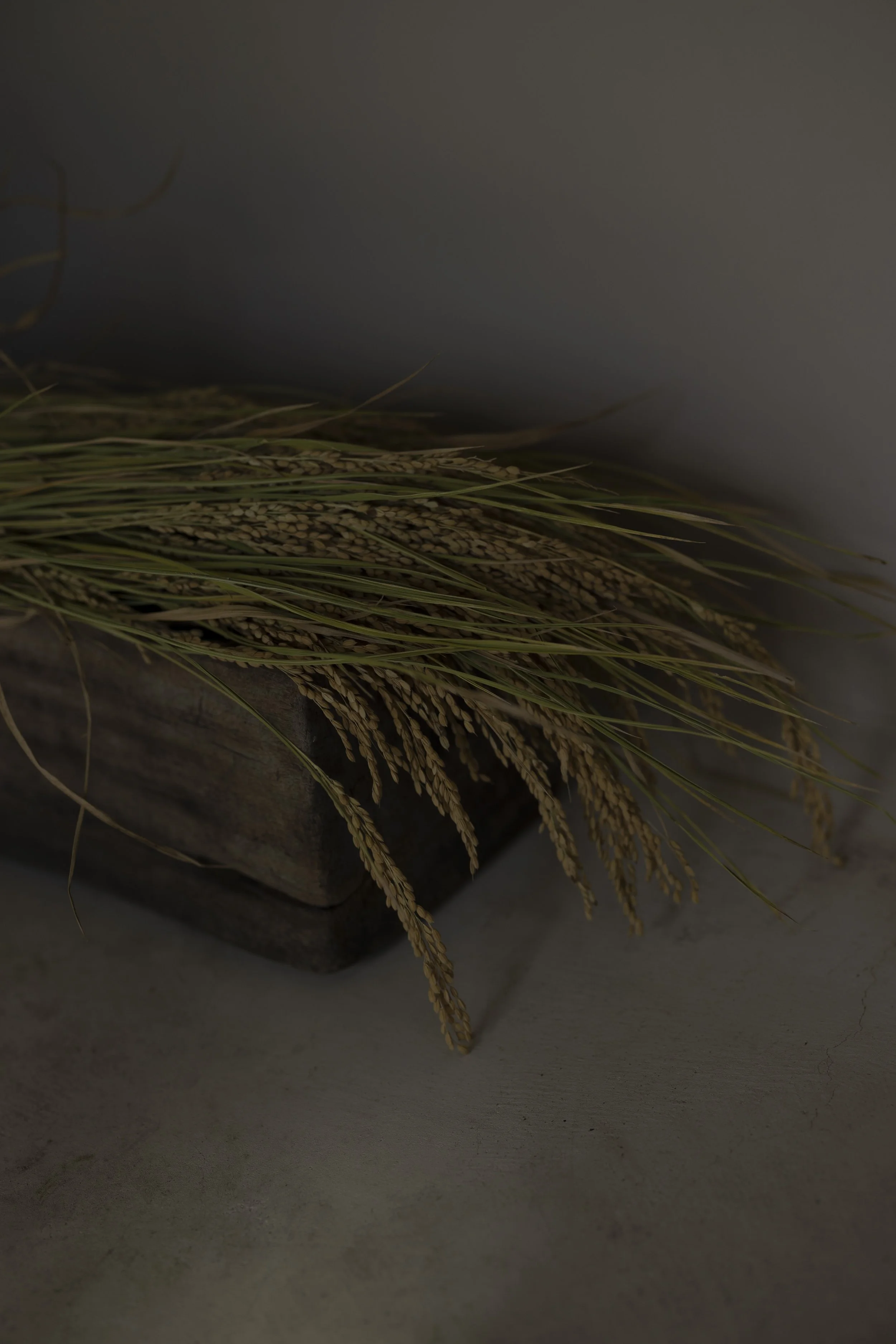FOOD LAB
Kyoto Research Institute’s Food Lab is a dedicated space to explore the heritage materials of Japan’s cookery culture. We explore how these materials can continue to nourish daily life in today’s kitchens, no matter where we call home.
At the center of this work are heritage materials. Traditional ingredients and techniques cultivated and refined over centuries that embody not only taste but also community and craft. They are living knowledge.
Food Lab is not about preservation. It is about fermentation. How heritage materials of cookery evolve with the times. Our activities include kitchen-based experimentation, documentation of traditional techniques, and educational curriculum.

More about OPEN LAB
⬇︎
On specific dates and times throughout the month, we welcome professionals, semi-professionals, and industry-adjacent professionals who can leverage the knowledge we have cultivated at Food Lab to transform heritage materials into new culinary and social possibilities. Open Lab is an opportunity to experience our current research and experimentation of the heritage materials of cookery.
京都研究所フードラボは、日本の食文化を支える伝統素材の探究の場です。フードラボの目的は、伝統素材の「保存」を見守るのではなく、今までからこれからへ繋げるその伝統素材の「発酵」を促すことです。記録、実験、そしてプロやセミプロ、業界関係者、フードラボの実践的研究を活動に活かせる方を中心に、オープンラボを開催しています。
OPEN LAB
Each session is 11:00 - 13:30 (2.5 hrs)
¥15,000 / person + tax
includes lunch
Open Lab is an opportunity to experience our current research and experimentation of the heritage materials of cookery. Midday, Open Lab is led by our Head of Food Lab. The workshop is followed by an invitation to lunch. We enjoy fully plant-based home cooking at our lab, centered around the material of focus at Food Lab that day, Home cooking includes five side dishes that celebrate Kyoto’s unique terroir, traditional soup style using fresh produce, and rice steamed with microseasonal ingredients.
While the listed participation price does not include drinks, should you be interested, we offer a highly curated drinks menu of local natural wines, nihonshu saké, and herbal beverages to enjoy with the meal.
ABOUT THE RESEARCHER
Ikumi Haneta, Head of Food Lab
【Current Research】 Tofu
Whilst Ikumi spent her childhood in Tokyo, much of her adult life to date was spent in Yakushima, known for abundant wildlife and lush flora, and where she ran her private dining restaurant prior to moving to Kyoto. Yakushima is said to hold every micro-ecosystem of the Japanese archipelago on the single small island.
Her first foray into professional cookery was as a certified nutritionist, working at a nursery school. Preparing safe and nutritious meals, as well as leading food education like reading picture books about ecosystem and cookery, and experiencing seasonality and agricultural techniques by tending to an on-site vegetable garden with the young children. She went on to study under farmers. And served as an assistant to cater, and style food photography and videography.
She relishes in cooking as a superpower. One that can nourish and heal, both body and soul. One that bridges varied upbringing, and transcends language.
Her current research is on regional tofus across Japan, and what hints they may provide for our environmental and nutritional health worldwide.
京都研究所 Food Lab
料理教室
【今期の伝統素材】豆腐
日頃から研究を重ねている衣食住の「食」を支える伝統素材を共に探求するオープンラボとなります。ワークショップ後、研究内容を軸とした野菜中心の一汁五菜昼食とお茶菓子を召し上がっていただきます。
日本各地の〇〇料理の原料や調理法、食材が育つ環境、その生態系や歴史的背景、そして今後の可能性を日々研究しています。進化していく〇〇料理の探求を覗き見できるのが弊社のFood Labです。
Food Lab 主任 | 羽田 郁美
東京出身。
栄養士の資格を取得して保育園にて、子どもたちへの食育がこの道の第一歩となりました。安心安全な食事提供だけではなく、食にまつわる絵本の読み聞かせ、季節の行事体験、畑で野菜を育てるなど、「食べること」の生態系とそこに巡る気持ちの大事さを子どもたちと共に意識を深めていきました。
食に関連してできることは何でも体験してみようという一心で、その後、料理家のアシスタントとしてケータリングや撮影のコーディナーター、フレンチオーベルジュの料理人、また、屋久島で8年弱、数組限定の予約制レストランを営むという濃厚な経験を積んでいきます。
京都に移り住み、山々に囲まれた小さな都会で、古くから大事にされてきた人と人のご縁、人と大自然の関係性をヒントに、Food Labでは、日本の食文化を支える伝統素材の探求を続けています。
OPEN LAB
Special Open Lab with our Chef-in-Resident
Each session is 11:00 - 15:00 (4 hrs)
¥30,000 / person + tax
includes lunch course
Open Lab is an opportunity to experience our research and experimentation of the heritage materials and techniques of cookery. The workshop welcomes you to join our Chef-in-Resident for hands-on study of a hyper-specific research topic to share what they have discovered during their residency. Followed by a multi-course lunch.
While the listed participation price does not include drinks, should you be interested, we offer a highly curated drinks menu of local natural wines, nihonshu saké, and herbal beverages to enjoy with the meal.
ABOUT THE RESEARCHER
Seiji Komatsu, Chef-in-Resident
2025 October 18 - December 21
【Research Topic】The Historic Fishways of Kyoto
A Kyoto-native, Seiji is a chef and researcher who bridges the freshwater food cultures of Laos and Japan. Trained at Kyoto University’s Graduate School of Asian and African Studies, Seiji conducted fieldwork in Laos on fisheries distribution, where he was struck by the diversity of the Mekong’s fish species and the culture of using every part of the catch without waste. This holistic approach to food, known in Lao as tamasaat (“natural, as it is”), continues to guide his approach to cookery today.
After graduate school, Seiji spent seven years in the Kyoto and Osaka central wholesale markets, working in fish distribution. During this period, he began experimenting with Lao cuisine under the name Komatsutei Thammasart, combining Lake Biwa’s freshwater fish with traditional Lao techniques. Introducing diners to dishes that include game and fermented fish crafted from Lake Biwa’s native species.
Leaning into early childhood education led by his father, a traditional Japanese chef, Seiji’s topic of research as our inaugural Chef-in-Residence dives into the historic waterways and footways that connect Kyoto with freshwater and saltwater fish. Cultivating the rich culinary ecosystem that has since positioned Kyoto as the cultural capital of Japan. In Kyoto, we call these ingredients “kawamon” and “umimon”. Join us to learn about Seiji’s research and eat something delicious together.
Sample Menu
<八寸 - starter course>
梭子魚幽庵焼き
grilled soy-mirin marinated red barracuda
柿白和え
tofu-dressed persimmons
春菊ごま和え
young chrysanthemum greens
鱧棒鮨
grilled conger eel rolled sushi
鱸松風焼き
sesame seabass
本諸子焼き浸し
dashi-steeped grilled honmoroko
<焼き物 - grilled course>
鰆西京焼き
Japanese spanish mackerel marinated kyoto miso, grilled
<お造り - sashimi course>
しび
young bluefin tuna
鯖きずし
vinegar-cured pacific mackerel
平目昆布〆
kombu-cured flounder
<小鉢 - small dish course>
紅ズワイ 蟹酢
red snow crab
<握り鮨 - nigiri sushi course>
しび
young bluefin tuna
平目
flounder
鰯
pacific sardine
黒むつ
black cardinal
梭子魚
red barracuda
<椀もの - broth course>
鱧松
conger eel and matsutaké mushroom
京都研究所 Food Lab
シェフ・イン・レジデンス
【第一期生】小松 聖児 氏
研究テーマ:かわもん、うみもん
京都出身の料理人であり研究者の小松聖児は、ラオス料理人としてご活躍しています。しかし、元を辿ると、京都大学大学院アジア・アフリカ地域研究生として東南アジアに渡り、ラオスにて漁業流通や自然環境のフィールドワークが全ての始まりとなります。メコン川流域で出会った多様な魚種と、「獲れたものを余すことなく使う」食文化に強い感銘を受け、その“自然のままに(タマサート)”という思想は、今も料理の根幹をなしています。
大学院修了後は、京都・大阪の中央卸売市場の現場に携わりました。その傍らで「小松亭タマサート」としてラオス料理の探究を重ね、琵琶湖の淡水魚とラオスの発酵や狩猟の技法を融合させた新しい一皿を生み出しています。
この度は、京都研究所の初代シェフ・イン・レジデンスとして、ルーツを辿っていただきます。日本料理人の父親のもとで幼少期から学んだ和食の基礎を土台に、京都に集まる「かわもん、うみもん」、淡水と海水が交わる「京:食文化の交差点」の研究を進めています。京都では古くから、川の恵みを「かわもん」、海の恵みを「うみもん」と呼び、季節とともに食文化を育んできました。
小松シェフとともに、京都ならではの豊かな食の生態系を味わいながら学びのひとときをお楽しみください。
LOCATION
FAQs
Please note that bookings and reschedulings can only be made up to 48 hours in advance.
No refunds are possible for cancellations that are made within 72 hours of the booked date and time.
Please do not wear any fragrances to Food Lab to ensure that scents do not interfere with on-site research.
Please note that you will be taking off your shoes, so do wear your favorite socks and slip-on shoes.
If you are coming by train, the nearest station is Miyake Hachiman on the Eizan Railway. We are located by 5 mins walk.
If you are coming by car, please inquire at info@kyotoresearchinstitute.com regarding car parking options.
If you are coming by taxi, please get off in front of the shrine gates here and walk 2 mins as the roads are extremely narrow leading up to Kyoto Research Institute.
SOME OF OUR RESEARCH
Koji, the national mold of Japan, has long been considered the foundation of Japanese flavor. It enables the making of miso, soy sauce, mirin, vinegars, and saké. Research begins with the biology of koji, its fermentation process, and the community culture around it. We then move on to experimentation. What new forms of fermented staples might be developed with koji today? How might its enzymatic powers be adapted for plant-based cooking, or for kitchens far from Japan?
Food Lab also investigates the regional spectrum of tofu, an ingredient that appears deceptively simple yet encompasses a vast range of forms and traditions that mimic its unique terroir. Silky kinugoshi, freeze-dried koyadofu, and tofus made not with soy beans, but with peanuts and sesame seeds to name a few. Each type developed as a response to local needs and tastes. Technical knowledge and cultural context, inspires modern, sustainable proteins rooted in traditional practice.
Our study of seaweeds which include kombu, wakamé, nori, hijiki, mozuku, tengusa, are just a few that have historically been used for consumption. As an island country they are central to our nutritional foundation. They also embody ecological interdependence, linking human diets to oceanic health. Food Lab examines their properties, regional harvesting practices, and culinary applications, while exploring how seaweed can support broader global food cultures.













